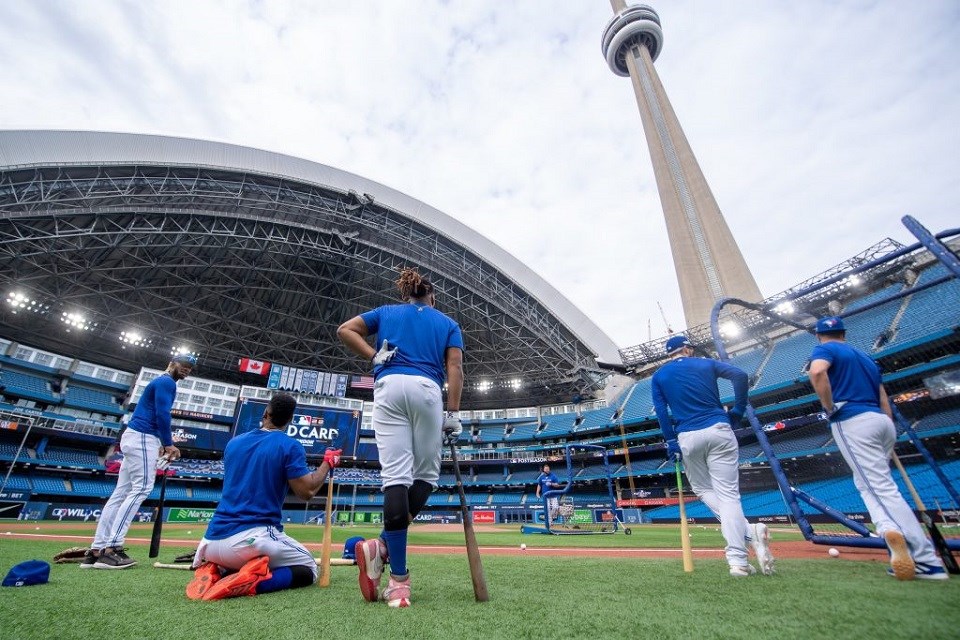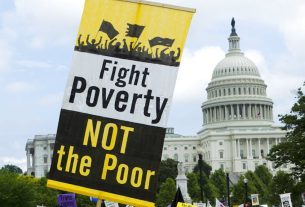Manoah was renewed at $706,200 last year and proceeded to finish third in American League Cy Young Award voting after logging 196.2 innings across 31 starts while posting a 2.24 ERA.
Alek Manoah is taking a renewal from the Toronto Blue Jays for the second straight year, once again turning down a raise based on the club’s pre-set scale to make a point about fair value for pre-arbitration players.
The 25-year-old right-hander will earn $745,650, according to an industry source, the midway point between the big-league minimum salary of $720,000 and the raise he would have gotten under club’s system for awarding increases based on playing and service time.
Manoah was renewed at $706,200 last year and proceeded to finish third in American League Cy Young Award voting after logging 196.2 innings across 31 starts while posting a 2.24 ERA. That earned him an additional $2,191,023 through the pre-arbitration performance bonus pool part of the new collective bargaining agreement, an improvement for elite players between zero and three years of service time, but still in a system Manoah understands and protests.
“There are no hard feelings there (toward the Blue Jays) at all – this is a business decision. At the end of the day, I’m getting less money in my pocket but there’s a precedent to be set,” Manoah said in an interview Friday. “We did a decent job in the CBA last year of fighting for 0-3 players and I was able to dip into that bonus pool a little bit. Me personally, I don’t think we’re where we need to be yet, but we’re heading in the right direction. That’s the biggest thing, continuing to leave the game better than how we found it.”
Alek Manoah is being renewed by the Blue Jays, as @JonHeyman reported. He’ll earn $745,650 in 2023, according to an industry source. Minimum this year is $720K. He made $706,200 last year, when he also took a renewal rather than accepting the club’s scale-based raise. https://t.co/Ulq4RAny7G
— Shi Davidi (@ShiDavidi) February 24, 2023
Hence, Manoah’s decision to reject a substandard raise based on a pre-determined scale, a call made in conjunction with his representatives. Teammate Bo Bichette took the same approach last year before graduating into the arbitration system this off-season, something Manoah is eligible for after the 2024 season, if not as early as next winter.
The staggered system for player compensation – set for three years by clubs through their own scales relative to the major-league minimum, followed by three years of arbitration and then free agency – turns elite young players like Manoah into massive bargains early in their careers.
It isn’t until the final stage of the progression, when players hit the open market, that they can earn to their full potential, but by that point they generally are past their peak, preventing them from leveraging their best years.
“Being able to understand the system a little bit more now, it shouldn’t really matter what year you’re in – values are values,” said Manoah. “The Blue Jays are one of the better organizations that do (a pre-arb salary scale). Some organizations put guys into a bucket and then give a standard raise for everyone. At least the Blue Jays have a calculated system where you can earn these bonuses a little bit more than others.”
The Blue Jays system rewards both service time and performance, with bonuses for things like all-star selections and top-three finishes in awards voting, both of which Manoah hit last year.
Manoah enters this season at one full year plus 130 days of service time, or 1.130, and another full season could make him eligible for arbitration at the end of this season if he ends up among top 18 per cent of players between two and three years of service. The cut-off for Super Two players, as they’re known, this past off-season was 2.128 but was as high as 2.134 back in 2018.
The thin line will make a dramatic difference for Manoah’s earnings not only in 2024 but also in years to come, as it’s only through arbitration that salaries escalate significantly, with each year building off the one before.
Teams sometimes use the limits on early-career earning power to buy out free agent years down the road and average out cost through long-term extensions, but Manoah indicated little seemed to be happening in that regard.
Given that he isn’t eligible for free agency until 2027, “I don’t think I’m a priority right now,” he said. “I’m under contract no matter what for the next five years and I’m fine with that. I understand there’s a system that builds up gradually, Arb 1, Arb 2, whatever the case may be and I’m completely happy riding out that process and allowing the team to go spend money on other guys and me continuing to earn my value and earn what I hope to get one day.
“I don’t think there’s been any talks about anything. I don’t expect me to be a priority right now. I’m under contract either way, so, they really don’t need to buy or sell me or anything. I’m super happy with where I’m at and the guys that we’re adding into the clubhouse and how the team is looking. That’s more important than anything right now.”
Such a mature outlook comes from his recognition that he’s locked into a collectively bargained system and any frustrations about the disparities are aimed there, not at the Blue Jays, who are operating within the rules as they’re written.
“The fans understand that I want to play in Toronto for a long time,” said Manoah. “I believe in this team and I believe in the city, I’m super happy here and I believe we’re going to go and win a World Series. Whether it’s this year, next year or the year after, whenever it is, I believe this team is destined for great things. Little things like this (renewal), I try not to expend too much on it. There’s no hard feelings. It’s just the business part of it.”


